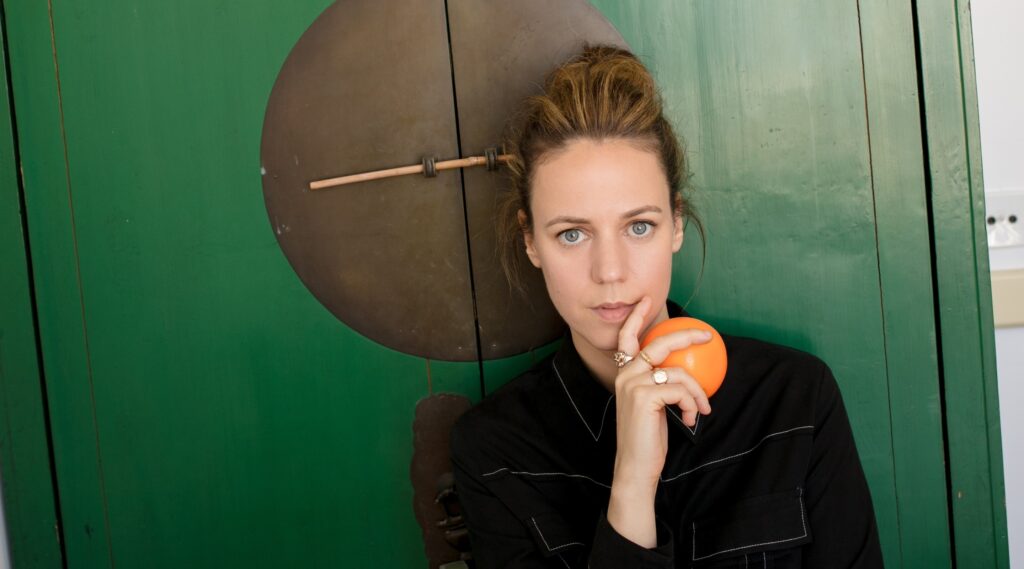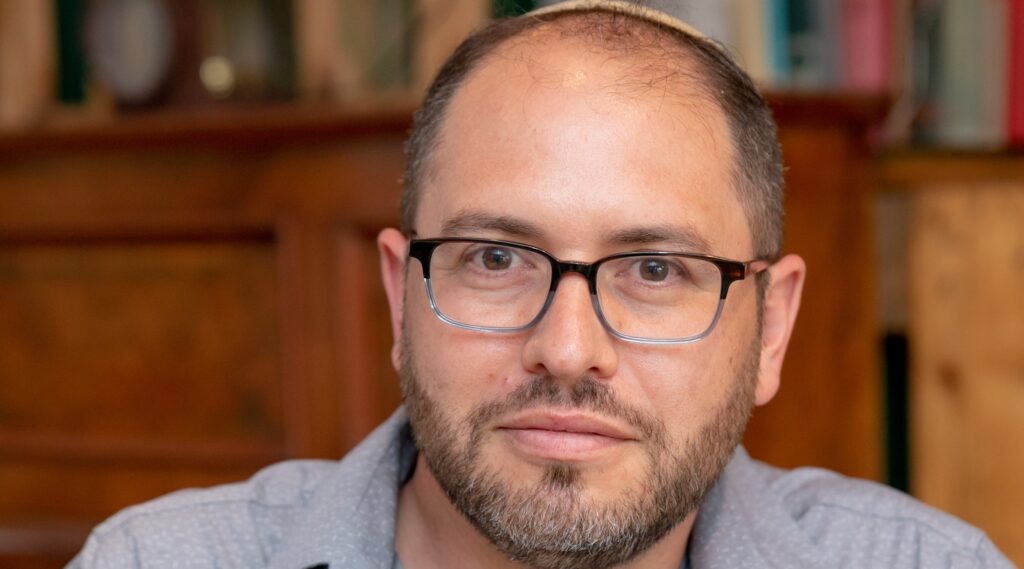Jerusalem’s Beit Avi Chai creates unique High Holiday programming for the age of the pandemic
Published September 14, 2020
This year’s upcoming holidays will be like none Jews today have ever experienced. Synagogues will not be packed with worshipers. Holiday meals will be scaled down. Many families will be celebrating alone.
For many, the special joy the holidays usually spark is tempered by anxieties about the pandemic, the economic crisis and the future.
But this difficult situation also presents an opportunity to reimagine Jewish learning in the age of the pandemic, and to harness technology and human creativity in a way that connects Jews to each other and the holidays in new ways. That’s the idea driving Beit Avi Chai’s ambitious online program for the holidays this year.
ADVERTISEMENT
The Jewish cultural and educational hub based in Jerusalem has created an online platform that offers a dizzying array of original, diverse content meant to enhance this year’s holidays. Ranging from music and podcasts to lectures with source notes, guided sessions with experts who highlight holiday-themed art and even cooking videos, the over 200 presentations seek to give Jews around the world a way to find inspiration and spiritual succor even from the comfort of their own homes.
“We want to provide people around the world with a way not just to celebrate remotely, but to find new Jewish inspiration during these holidays,” said David Rozenson, executive director of Beit Avi Chai.

Israeli singer-songwriter Rona Kenan offers a special holiday performance as part of Beit Avi Chai’s festival of Jewish learning and culture for the upcoming holidays. (Assaf Eini)
ADVERTISEMENT
“Obviously, none of us wants to be in this situation. Typically, in this special time of year, families and friends spend time together, the streets turn festive, there are many different types of programs and celebrations on offer for people to take part in. And that’s going to be very much missing this year,” he said. “That is precisely the idea behind Beit Avi Chai’s online initiative: one central platform filled with diverse and engaging programs presented together to bring the allure of Jewish culture and ideas for people all over the world to take part in. And you don’t even need to hire a babysitter or look for parking as everything is available directly from the comfort of your home.”
The festival of online learning and celebration is free, available for download and streaming, and includes material in Hebrew and English. All the presentations are new creations filmed by professionals on Beit Avi Chai’s stage in Jerusalem. The content is designed to provide a wide menu of different programs that speak to diverse audiences around the world.
Among the presenters: Israeli author Meir Shalev, musicians Eviatar Banai and Rona Kenan, chef and food entrepreneur Hedai Offaim, musicologist Edwin Seroussi, Hebrew literature expert Ariel Hirschfeld, art expert David Sperber, composer Shlomi Shaban and Jewish educators of every stripe. The content includes traditional approaches to the main concepts of the holidays alongside new perspectives aimed at young and less traditional audiences.
Tamar Elad-Appelbaum focuses her Yom Kippur lecture on the tradition of entering this holiest of all Jewish holidays wrapped in the tallit.
“This year, with the coronavirus, that tradition is more compelling than ever. I feel that all of us need to be enveloped with this garment,” she said. “It is the garment of light, life and hope that enables us to walk in this world, wrapped in those things which we very much need right now.”
Jewish educator Mishael Zion hosts a new podcast series, Hineni, with four episodes, one for each holiday this season: Rosh Hashanah, Yom Kippur, Sukkot and Simchat Torah. Each 45-minute episode includes multiple voices and aims to create what Zion calls “spiritual comfort food” in the absence of regular synagogue options.
“Many synagogues are creating online services, which is wonderful for people who use technology on the holidays,” Zion said. “But we really need to infuse that space with relevant, cutting-edge Jewish content. So Beit Avi Chai decided to combine that with the world of podcasting — a new and interesting platform through which really powerful storytelling takes place.”
For Rosh Hashanah and Yom Kippur, Zion tackles the universal issue of mortality – accepting and embracing it, and using it as a motivator to live meaningful lives.
“The Torah that is taught and questions that are asked are all universal Jewish questions,” Zion said. “I’m an Orthodox Jew and I interview rabbis who are not Orthodox. I might have a different approach but we’re all asking the same questions in this strange and daunting year.”

Jewish educator Mishael Zion’s podcast series, Hineni, includes multiple voices and aims to create what Zion calls “spiritual comfort food” in the absence of regular synagogue options for the four upcoming Jewish holidays. (Yael Ilan)
This is already the second iteration of Beit Avi Chai’s online holiday programming aimed at reaching a large and diverse audience. After the center closed to in-person programming in mid-March, it launched an online platform with a panoply of lectures and presentations for Shavuot. That program drew 21,700 participants to 45 online classes — many times more than the 2,500 or so people who usually come to the center for in-person Shavuot celebrations.
For this new initiative for Rosh Hashanah, Yom Kippur, Sukkot and Simchat Torah, Beit Avi Chai aims to reach at least 45,000 viewers and plans to make some of the content eventually available in other languages.
“Beit Avi Chai’s programs attract people from all streams of Jewish life, from the Orthodox to young people who look like they just walked in from the beach,” Rozenson said. “Our goal is for everyone to have a seat at the table. It doesn’t matter who you are. For us, the most important aspect is that Jewish texts, sources and ideas, the heritage of our people, are used as a basis to engage the widest possible audience and provide a greater understanding and appreciation for the depth and meaning of Jewish life and culture – and as a point of connection to each other.”
In his Beit Avi Chai presentation, Yair Zakovich, a professor of Biblical studies at Jerusalem’s Hebrew University, talks about mercy and prophecy in the Book of Jonah, which is traditionally read on Yom Kippur afternoon.
“It’s not only about mercy but repentance as well,” he said of the story of Jonah. “In the story of the golden calf in Exodus, Moses was ready to sacrifice his life so that God would forgive his people. A prophecy does not have to be materialized. It’s more like a threat of what happens if you don’t behave well, but it’s much more important to repent.”
Yafit Clymer, a longtime Jewish educator in Jerusalem, knows about COVID-19 all too well. Clymer was diagnosed with the disease just before Purim, forcing her to move all her classes to Zoom.
“For the project, I chose the topic of coming in and out of gates, because entering a new year is like standing in front of a gate,” she said. “It’s either locked and you need a key, or it’s open and you just go through. I think the key word is hope — letting people know this coronavirus will be with us for a long time, but that there is a light at the end of the tunnel, and we will get to the other side.”














